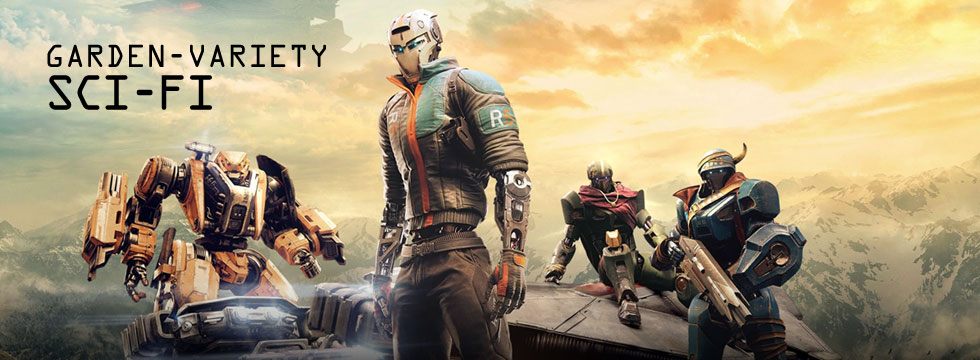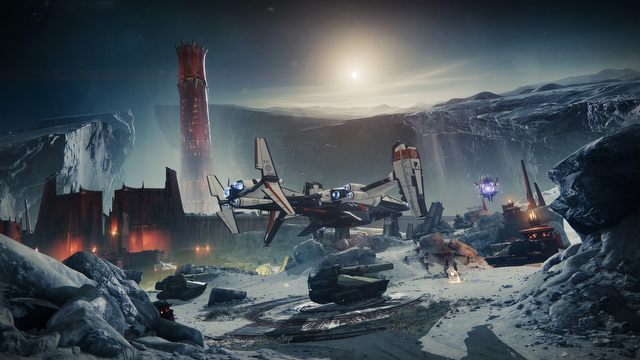Generic Sci-fi Has to Go – Discussing the Problem of Averegness
In the old days, all you needed to become absolutely riveted to the monitor, was a few colorful locations and a crosshair in the middle. Things are more nuanced now, and many creators seem to fall in the trap of creating mediocre, lackluster, safe games.
Table of Contents
Just a pinch of creativity
Of course, in many cases, it's all about the money and simply not being able to create something more ambitious. Many developers rely solely on web-based mechanics because they are cheaper and easier to produce than feature campaigns, and warrant the hope for a steady income from microtransactions. There's nothing, however, that could excuse lack of creativity and the release of dozens of generic, extremely similar games.
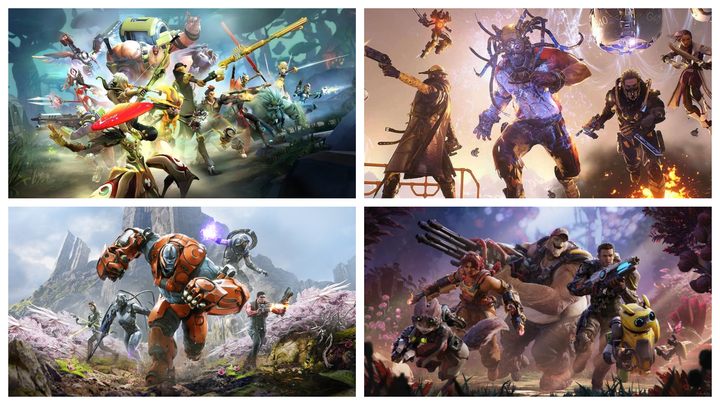
Even a small online game can have an interesting and intriguing atmosphere. This was the case with the co-op shooter GTFO. While the authors deliberately opted out of the mainstream customer base by proposing a gameplay that forces playing together with friends, they've also created a very compelling world. The strange underground prison and an even more mysterious guard raise questions and curiosity before we even really start playing, not to mention the thick atmosphere. Meanwhile, games focused on reaping frags and unlocking cosmetic outfits through victories, seems like cutting corners.
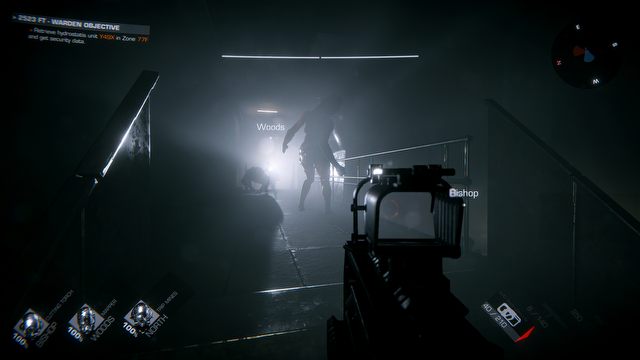
Why was the prison built? Whi us Warden? The tiny multiplayer game G.T.F.O offers a rich and intriguing setting without cut-scenes and a story campaign.
Generation's generic mishaps
We also know cases where even huge budgets have failed to go hand-in-hand with distinctive, convincing characters and universes. Destiny being the prime example. First, the quintessential lore was only presented on the game's website, only becoming shallower in the sequel, which effectively prevented the new game by Bungie from threatening the Halo series and Master Chief's unmatched charisma. For most players, it's just about shooting aliens with your friends, and the lore is completely ignored.
Another victim of this casual approach to settings was definitely Anthem – "the game no one was waiting for," the game that evoked no emotions at all, the game no one in BioWare had a good idea for. And if someone actually did, they apparently weren't able to realize it. Anthem remains an embarrassing monument to "generic sci-fi" that no one is interested in. Even with a ton of content and constant updates, the interest in the game wouldn't be significant, since the setting of Anthem was completely transparent. The vision wasn't really captivating, not even intriguing. And even if the plot itself was somewhat interesting, the universe ultimately wasn't involving.
The Limbo
Producers like to reach for science fiction settings because one, it seems to offer the biggest leeway; you don't have to worry about realism, licenses, and the limits are only set by the imagination. The problem is that none of the creators seem to take advantage of the poetic license, instead going for repetitive, formulaic worlds and stories. All locations, weapons, and characters look similar in all these games, each of the games offers some kind of team-based gameplay model. Games like Island of Nyne or LawBreakers invariably end up in the dustbin of gaming – because they offer neither the world, nor the characters that would compel us to explore and learn more about them.
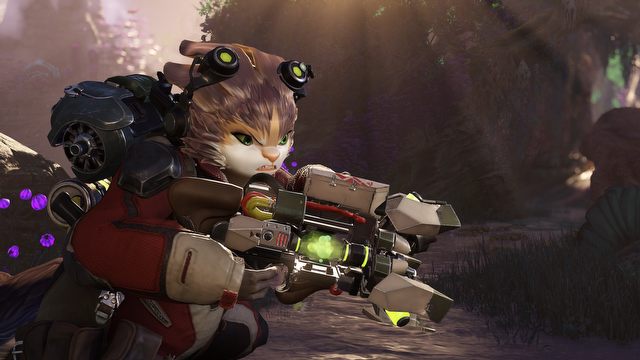
The characters of Crucible look cool. Would be nice to get to know them in some other circumstances than waiting in the match lobby.
Of course, purely gameplay-driven games can become successful, as proved by the battle royale games and some of the survival titles. But I have the impression that today, it is becoming increasingly difficult, and we much prefer more expressive, climatic productions, regardless of their length, difficulty or even technical condition. And creating memorable science fiction is especially difficult because that freedom is a two-faced coin. It requires more creativity than in realistic worlds, which have a clear point of reference.
Then, creators seem to underestimate the power of atmosphere and lore, the characters that we can relate to and like. And these things can be presented in a variety of ways – not necessarily through long story campaigns and expensive, mo-cap cut scenes. Let's hope the time of generic science fiction is over.
